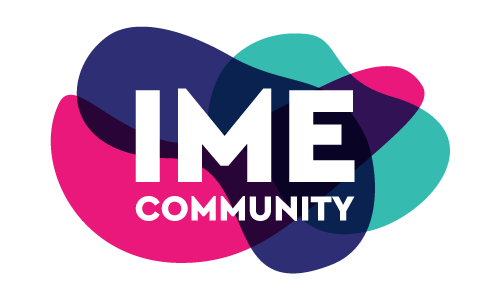
by Dr.Karla, ActivistMD | Mar 5, 2021 | General
So, you just left your doctor’s office and they showed you and your teen the growth charts and BMI% that shows they are in the overweight or obese category.
Maybe this isn’t news or maybe it is? It can be a real shock to the system.
Some of the things that may be coming up for you are:
Alarm, anxiety, fear that this conversation or anything you say will cause harm?
Most likely you are feeling a twinge of guilt or shame or worry or denial.
Maybe you aren’t concerned?
Maybe you have a lot going on in your life and this is literally the least or not even a worry for you?
Maybe everything is going great for your teen right now and you don’t want to rock the boat?
With COVID, we all need to give ourselves a break, so a little weight gain is nothing to be concerned about?
There are no wrong ways to react or feel in any situation. All feelings that are coming up are real. Thoughts create feelings which drive our actions and our results. Current thinking creates your current reality. If you feel powerless, hopeless, defeated, shame, guilt, denial, blame, judgment, worry, calm, helpful, interested, curious, hopeful, whatever it is you’re feeling, recognize that feelings come from your thoughts and not your teen’s measurements or anything the doctor tells you about your teen’s health.
Shamebusters/Mythbusters:
You don’t cause and you don’t control: our children and teens are not puppets on a string that we control. Hopefully, we’ve learned that by now. Our teens let us know this, don’t they? Mine do. There are a lot of causes to the epidemic of childhood obesity in the U.S., but if we narrow it down to one cause, the singular cause is our food system. Diets don’t work and they often cause harm. Low-calorie and low-fat haven’t been helpful and often fight our natural physiology and can be grueling and feel rigid and restrictive.
I encourage you to listen to my podcast (#7) that I call Shamebusters: My Weight Journey and also read my IME blog called No Before and No After to learn about my weight journey. My hope is you will feel some relief and have some compassion and grace for yourself and your teen as you understand that it’s not helpful to blame ourselves as individuals. Shame and guilt are natural human emotions and we can learn to process and respond, without reacting with judgment that will keep us stuck and buffering our emotions with food.
So, what works?
Studies show there are protective factors to prevent both eating disorders and unhealthy weight gain:
- Promote positive body image
- Family mealtimes
We’re always talking about how we all come in different shapes and sizes and that pertains to us parents too. No matter where we are on our health journey or with our eating and activity levels, we can all do what the studies show are helpful. Come on, Parents, don’t argue with science! I’ll always blind you with science. In other words, we can all promote positive body image and intentionally work to increase our family mealtimes.
We’ve been trained to think that we need to be role models for perfect eating. That isn’t helpful thinking because perfect doesn’t exist and keeps us in all or nothing thinking and feels powerless and helpless. The only role-modeling I want to encourage you to focus on, and I never waste your time, is to role-model self-compassion. Actually, role model imperfection too and show you aren’t going to pile on yourself, beat yourself up, criticize, restrict, and punish yourself, or make it mean anything about you as a parent or person when things don’t go your way.
We are all humans on a human journey and we need to have grace and compassion for ourselves and that starts with us as parents. We all love and want what’s best for our children no matter what. We want to prevent suffering for them, but we all know that is living in la la land (I’m not talking that awesome movie with Ryan Gosling and Emma Stone, though now I really want to watch it. No, must work). We don’t cause and we don’t control all of the things. Even when everything is going great for our teen, we’re not controlling that either! Whoa! My mind was blown when I started my life coaching journey and learned that little tidbit.
Let’s be compassionate because even this blog and my podcast and YouTube video will be activating for most of us. That’s okay. Just note that those are just thoughts coming up for you and try a better thought while you’re listening, like, “I’m listening and learning and showing up as a loving and supportive parent.” “I don’t have to fix or solve anything.” “I’m curious and wanting to create a positive and fun way forward.” “I believe in my teen’s unlimited potential.” “Nothing is going wrong.” “I’m a loving parent who tries my best at the time.”
Check out my 5 Keys for Parents to Support Your Teen’s Health Independence. Listen to the podcast and YouTube video and stay tuned for the IME Community FB group for parents coming soon! Below is a list of ways to help you as a parent promote positive body image in your child/teen (created for teachers and parents by The Student Body). Make sure you encourage your teen to sign up for the IME member Community!
Parents’ role in promoting a positive body image
Parents and caregivers play a crucial role in the development of children’s attitudes and behaviors. Although a child’s body image can be influenced by their peers, the media, and other adults in their lives, it is parents who help to build a strong foundation for their child.
Before helping your child, it is important to understand your own attitudes towards food, exercise and your body. As a parent or caregiver, what messages are you sending?
- Are you dissatisfied with your shape, size, and weight? Do you talk about this?
- Are you always on, or going on, a diet?
- Do you express guilt when you eat certain foods?
- Do you make negative comments about the way other people look?
Tips for promoting a positive body image in your child/teen
- Place less emphasis on your child’s appearance and more on their abilities and skills.
- Be a role model by accepting your body and maintaining a positive attitude towards food and exercise.
- Make time for family meals and enjoy the time spent together.
- Encourage your child/teen to think critically about messages and images they see and hear in the media.
- Help your child/teen understand that their body will change, especially throughout puberty.
- Promote activities that make your child/teen feel good about themselves and that don’t focus on their appearance.
- Teach your child/teen that it is OK to show emotions such as sadness, anger, and frustration.
For more information on promoting a positive body image in your child, visit The Student Body, a resource for teachers and parents.

by Dr.Karla, ActivistMD | Mar 5, 2021 | General
I never know how to spell judgement. Is it with an “e” in the middle or not? Will you clarify this for me, once and for all? My only problem is I won’t remember your answer. You know how words start sounding weird the more you say them or they just look weird on paper? Oh well. That’s enough of that. I’m definitely not judging myself over what spellcheck can have my back on.
Do you ever judge yourself? Are you human? If yes is your answer to my second question, then, your answer is yes to my first question.
To be human is to judge. Wow! That sounds so judgmental of all humans!
So, well, of course, you judge yourself on all sorts of things. Some days may even feel like a self-judging smorgasboard. Sometimes, you may think everyone is judging you? Hold up. That’s the next podcast, YouTube and IME blog called Are You Me?
Self-judging is kind of like when you fight with your sister or brother and they have you pinned down and are taking your hand and slapping your face with it (not too hard, hopefully) and saying, “Why you keep hittin’ yourself?” That scenario is kind of funny, but hitting yourself verbally in your mind as you are going about your day is one of the least funny things I can think of. It’s the opposite of fun. I would call it nufnu, or unfun spelled backwards which I talked about in my You say it’s not your Birthday! Who cares! Party time! podcast. Anyway, when we are doing a lot of self-judging, it can cause unnecessary pain for ourselves and is an energy drain and keeps us from getting to where we want to go and do what we want to do, like even simply getting off our phone to get a paper written.
So, why do we self-judge and when do we know we’ve taken it so far that we are actually not able to do what we wish to do or maybe we are causing ourselves harm?
Self-judging may come up in your body. It feels like a weighted blanket to me. So, can’t I just throw it off? Sometimes! Other times it’s more insidious and I have to just check it at the door, like a coat I’m fine with leaving at a swanky party if I lose my ticket to redeem it at the coat check at the end of the party. Nah, I’m fine. That old thing? Who needs that? Not me.
Self-judging is always going to happen. The problem is it can be a pain point we create for ourselves if we are in the habit of taking it too far. Simple awareness or recognition and checking those thoughts at the door can help. I’m onto you, Brain. I see what you are doing. It’s okay. You’re trying to keep me safe. You think there’s something scary happening and I’m simply telling you “Nope, nothing is going wrong here.”
Self-judging must serve a purpose. I mean as cave-humans there must have been some days on the hunt, when the cave-human brain said or grunted when the hunt was an epic fail and they came back empty- handed, “Hey, maybe try to sharpen up that spear next time, you big Dummy.” (very evolved language-wise cave-humans)
I can help you to stop judging yourself. Judging yourself too much results in ongoing pain and suffering that isn’t necessary and will be a roadblock for you to reach your goals.
You’ve got to hand it to yourself. Why would you want to make any sort of change or take action or lose weight or try something, when your own brain is judging you harshly the whole time? It’s like you are your own worst enemy. It’s literally like having Judge Judy renting a penthouse apartment in your brain.
Some people call this self-judging voice the inner critic, The Voice (Geneen Roth), or just negative self-talk. We all have it.
Self-judging is secondary comes from most often or starts with a feeling. It could be shame that’s coming up. We are never taught to process our feelings. In fact, we’re taught that it’s weak to feel our feelings. So, judging comes from feeling shame and it’s resistance. It’s like white knuckling on the way up the big roller coaster hill, squeezing that bar so tightly, and then also resisting and white knuckling the entire way down. We’re kind of taught to be like that one person in those pics they take at amusement parks on the way down. You know the one person in the group who has the look of complete shock and terror and is gripping on for dear life while everyone else has both arms up and is screaming with a mix of terror and excitement. I’m usually the gripper.
So, how do you know when your self-judging is helpful?
Maybe you think it’s motivating you? You can probably tell if it’s too much by how you feel most likely. Or, just by how much negative self-talk and mind chatter is coming up for you throughout the day. Do you feel weighted down like there’s a heavy weighted blanket? Are you stuck and don’t know or aren’t figuring out the next step to take towards a goal? Then, your self-judging is too much.
Notice when you’re self-judging and don’t try to fix. Create a pause and that will give you some space to lighten it up and soften up instead of being hard on yourself. Practice your self-acceptance habit skill and give yourself a nice nurturing hug with your warm invisible blanket. Join IME Community where I’ll teach you how to stop self-judging, slay your goals and chase your dreams and have some fun! Let’s go!
Say I am me. Get your self-acceptance blanket out. It’s warm. It’s invisible and always there for you. I fully love and accept myself. Write it on a post-it note and carry it with you during the day. Sleep with it stuck to your forehead if you need to. These are the first steps to self-love, which is your superpower. You are worthy of learning to love yourself. I hope you already do and you’re ready to knock down those goals! Let’s go! You came to the right place. As world’s most impatient person, I will waste zero of your time.

by Dr.Karla, ActivistMD | Mar 5, 2021 | General
I recently coached Logan, IME Community Social Media Strategist, who wanted some life coaching on procrastinating and some help staying off his phone. He’s taking 17 hours (5 classes) as a sophomore at UNL this semester and is having a hard time getting stuff done. He doesn’t hand things in late, has always done really well in school, and really likes to learn the material. He always gets it done, so there’s that too. I asked him why it’s a problem at all if he always gets it done. The problem he said is he’s in a pattern of making it harder on himself and spending only a couple of hours on a paper that he thinks he should have been working on for a whole week. He then feels badly about himself. When he thinks about his class load this semester or a paper that was due a couple of hours from when I coached him, he thinks, “If I can’t learn the way I want to, then what would be the point.” So, his problem is he’s not showing up as his authentic self and is stuck in a pattern that may have worked fine for him in the past, but isn’t going to work for him as his classes get harder. Logan was blaming his class load when that’s a circumstance, and the real problem is that he is creating a feeling of defeated from his thought, “If I can’t learn the way I want to, then what’s the point.”
Here are my notes I sent Logan after the life coaching session:
Logan,
Here’s your unintentional thought model. It shows how your current thinking creates your current results and not the circumstance of the class load or the paper.
Circumstance: 17 hours and 5 classes
Thought: If I can’t learn the way I like to, then what’s the point.
Feeling: Defeated
Action: buffer by going on phone; feel bad about myself; blame class load
Result: I’m not positioning myself to learn the way I want.
You had some beautiful awareness of thoughts. You also said your thought was, “This is for later,” and “This is a lot,” when you sit down to work on the paper. The feeling that comes from that thought is overwhelm.
Thoughts will come up as will uncomfortable feelings as you sit down to work on a paper or study. There’s nothing going wrong. A thought is just a sentence in your mind or a cloud going by or a rainbow. You don’t have to believe it or make it mean anything. Also, we talked about the motivational triad and how our brains are literally status quo comfort machines that will keep us avoiding pain, seeking comfort, and seeking pleasure. You can be curious observer and just say, “Hey, Brain. I’m onto you. I see what you’re doing here. There’s nothing going wrong.”
We also talked about buffering which is something we do that creates a relief or happiness, that little zing of dopamine, false pleasure when we are trying to get out of feeling an uncomfortable emotion. You said you feel relief and happiness as you go to your phone.
To create an intentional model, try on a new thought that serves you and that you believe and that is in alignment with your ideal self, who, as you said, is someone who really likes to learn. You can also ask yourself, “What’s my desired outcome?” Then, think of what’s in your way. First, it’s your thoughts and then there are other obstacles and challenges that you can turn into strategies.
Circumstance: 17 hours and 5 classes
Thought:
Feeling:
Action:
Result:
You can start on any line you want. If you want to start on the result line, no problem. Then, go to what actions will create the result you want, and what feeling drives those actions, and what thought creates the feeling you want. This is all the best news ever. Logan, all you have to do is unlock the power of your mind and you have all the power you need to create any result you want!
Self-Love Superpower,
Dr. Karla

by Peter Allman, MA | Mar 5, 2021 | General
The way you operate in your internal and external worlds always starts in the internal world of thoughts. Your thoughts then create your feelings. The information from your thoughts and feelings leads you to choose your behaviors. This is the progression of how we live:
Thoughts
Feelings
Behaviors
Everything starts with a thought. The National Science Foundation found we have about 50 thoughts every minute. That’s up to 50, 000 thought a day! That’s a lot of thoughts! If your mind is constantly scampering around like a squirrel on caffeine, how can you find the feelings of peace and serenity?
Everything starts with a thought. There are incredibly healthy thoughts like, “I want to eradicate polio.” This led to the behavior of creating a vaccine which stopped the spinal chord motor neuron disease. There are also incredibly unhealthy thoughts like, “Jews are bad.” This led to the behavior of creating concentration camps and the killing millions of Jews.
The number of thoughts we have each day is staggering. The power of these thoughts is also staggering. Can you imagine being able to shape, control, and access the power of your thinking? Can you imagine living with a mind that is quiet and composed?
The mind is a wonderful servant but a terrible master. Thoughts, The Power of Your Mind uses the wisdom of thought leaders through the ages. Each chapter contains a provocative quote from a philosopher, artist, author, spiritual leader, scientist, statesman, or theologian to help you train your mind to be a wonderful servant.
With the help of this book, you are going to explore the power of your thoughts. You will “see’ your thoughts and that will create room to work with those thoughts. You will have the flexibility to decide whether to act on that thought or discard it and create a healthier one. Believe it or not, you will create a life that is more centered, quiet, and peaceful.

by Dr.Karla, ActivistMD | Mar 5, 2021 | General
I wanted to share with you more about what happens when we believe that others are judging us. I’m not talking about bullying. Speaking of bullying, here is a helpful link to Helping Everyone Achieve Respect: https://project-hear.us. I’ve been bullied and it’s definitely painful. Remember, find your helpers and seek out and create your communities that recognize your humanity. Bullying is not neutral and has to be called out and addressed. What I’m talking about in this blog is the pain we create when we choose to think we are constantly being judged by others.
What anyone says is a circumstance and is actually neutral, though it doesn’t feel that way and is more complex. It’s not what they say, though that can be triggering, it’s our thoughts about what they said that create the feeling and that’s what drives the actions to make what we think someone else is doing, saying or thinking mean about us as an individual.
In fact, we really have no idea what anyone else’s experience, thoughts, or what they are thinking about us. We are completely powerless over others, which is the good news. Because, everyone else is completely powerless over you. Now, I’m not talking about your parents, teachers and the rules we follow. Of course, we all have consequences for our actions. I’m talking about the fact that other people are powerless over your thoughts and feelings and actions and results.
We are humans and we want to fit in and we want others’ approval, and when someone says something or acts in a certain way, or we just think they are judging us, we think if only they knew the real me or I could change, then nobody would be judging me. As you are going about your day, hum, hum, hum, the thought that they are judging me, can cause you to have a feeling of judging yourself and then your actions are probably going to be to jump out of your own lane, your own life, your own power, and convince and defend.
They may be judging you. Who knows? You’re a human. You and I judge other people. Right? We talked in the podcast on self-judging (Lighten up on yourself) that all humans are judgmental and that those thoughts are going to keep coming up, but we can soften them up and lessen them and note that they are just thoughts and choose not to give thoughts that aren’t serving you power. All we have to do to pull the plug on their power is to recognize when and how they come up for us.
Usually, when we are judging someone, we are actually judging ourselves. So, let that be a helpful indicator to you. You can start to notice when you are judging someone else and learn to drop it like a book. Judging others means you are headed into comparison land and that is like in CandyLand where you get sent backwards to the start. I hate it when that happens. It feels really good sometimes to judge other people. It’s like that itch we gotta scratch. Ooh, up to the right a little higher, that’s the spot. But, recognize, this is going No-wheresville. The reason is your judging means nothing to them and has zero effect on their life. It’s a waste of your time.
I don’t mean you shouldn’t have boundaries that keep you safe and in a healthy place. Also, I know that what other people say can be triggering in a good, bad or neutral way, so can trigger a thought that creates a feeling. It’s the thought about what they said or what you are making it mean about yourself that creates whatever feeling you are having.
You don’t have to spend your time convincing people who you are and I would recommend not wasting time defending yourself. Now, this depends on the circumstance, of course. You can be clear with other people and set boundaries and decide maybe not to be friends with them and you don’t want to hang out because you have decided that you would rather find people to hang out with who are more in line with how you treat people. That makes sense and you get to decide and love your choice.
Here are the three most helpful life coaching teachings I have learned and I’m telling you they are life changing! If you have a thought coming up that you are being judged, just ask yourself or consider challenging your current thinking and beliefs that aren’t serving you:
- What am I making it mean? Why am I giving other people’s words, actions or what I think they are thinking about me power?
- Let them be who they are. We can’t change other people. So, let them be who they are.
- Let them be wrong about you. Don’t waste your time convincing or defending yourself. You have an amazing life to live. When you have your own back and fully love and accept yourself no matter what, you have self-love as your superpower!
The power is in you as an individual accepting yourself no matter what and power in a community that you seek out that fully loves and accepts you.
When you wear that warm self-acceptance blanket and you have your mantra- I aM mE and I fully love and accept myself, there’s nothing you can’t do. That’s available to you right now.
Self-Love Superpower,
Dr. Karla




